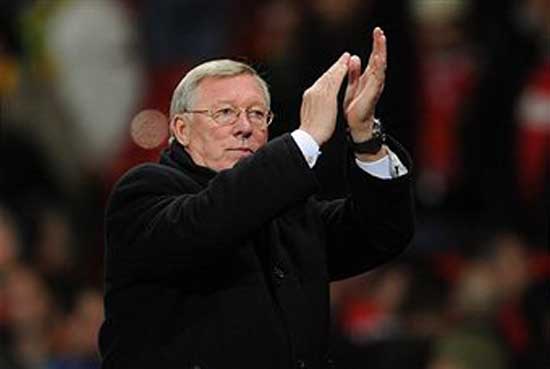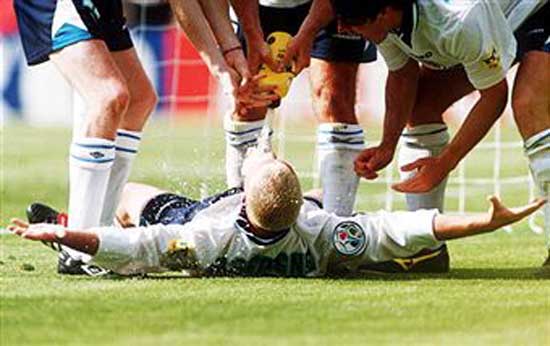Liverpool fans should not delude themselves into believing that now the Gillett-Hicks regime is finally over, and peace reigns at Anfield, that it will bring success on the field of play.
Yes, Roy Hodgson’s team is rediscovering the art of winning again, but the simple equation – a happy set up equals playing success – is a myth.
For a start, despite all the players’ talk of how their heads are “turned in” by turmoil off the field, the fact is, they are in a bubble in which they remain most of their playing life.
I always recall the comments of David Pleat when he was managing Sheffield Wednesday many moons ago. They were then a top flight club and Pleat had saved them from relegation that season. At the end of it he asked one of his leading players, then a prominent member of the England team, how he would have felt if the club had been relegated. The player seemed surprised by the question and answered: “I would have gone on my holiday. I was really looking forward to it.”
Players may make much of kissing the badge and declaring loyalty to the club, but that is part of the public relations they are required to indulge in. That must not be taken for the real thing. They are paid professionals, paid very well for what they do, and wider factors rarely impinge on their work.
If you think this is farfetched, then consider Manchester United and the season of 1998-99. The previous season, Arsenal had done the double and United were under pressure. No season could have seen a more traumatic start for any club. It had barely got under way when there was the shock announcement that the United board had agreed to a takeover of the club by Rupert Murdoch’s BSkyB.
Not all members of the board were agreed on the bid. Then-United board member, Greg Dyke, was opposed and delayed acceptance, before finally being advised that, as a director, it was his fiduciary responsibility to agree to the bid in the interests of the other shareholders.
A huge section of the United fans, answering to very different responsibilities, were opposed to the bid and began a ferocious campaign to stop it happening. Crowds gathered outside Old Trafford to protest and in particular to shower invective against Martin Edwards, the United chairman. One of the more printable things said about him was that Martin Edwards knew the price of everything, but the value of nothing.
The venom the Liverpool fans have shown towards Gillett and Hicks does not even begin to compare with what a section of the United fans felt for Edwards and what they saw as his money-grabbing schemes. In many ways, this marked the moment when a section of the United fans grew permanently disillusioned with the board and never regained their faith with the club management.
Indeed, at the end of the season a section of the fans went off to form their own club, which is now a springboard for protests against the present Glazer regime.

To compound matters, relations between Edwards and Sir Alex Ferguson (pictured), which had been going south for some years, was now reaching a very low point. Edwards was not happy with some of the player purchases Ferguson had made.
Indeed the friction between the two men had reached quite a critical stage. So much so that, as Tim Bell, then a BSkyB adviser, would later tell me, when BSkyB suggested Edwards involve Ferguson to help their bid, he rejected the idea. When I revealed this story, Ferguson was furious and Edwards was forced to make peace with his manager.
Now, as all gurus of football will tell you, nothing is as important as the relationship between manager and chairman. Other parts of the football club may or may not work, but if this relationship does then the club prospers. If not, the club is doomed. But that was hardly the case at Old Trafford that season.
Tim Bell was very surprised by how the board saw the manager and the fans. This is how he put it to me when I wrote my book Manchester Disunited: “The impression you got was that the board had actually created this great institution. They felt they were doing the fans a favour by letting them in and doing the players a favour by allowing them to play for Manchester United. And the manager had better toe the line, otherwise he wouldn’t be the manager any more. I was absolutely amazed.
“I thought they would have a very acute idea of what their assets were worth, how valuable they were and how their assets should be treated with some care and caution.”
Yet what happened on the field? United had their greatest ever season. They did what has never been done before in this country, the treble of the Premiership, the FA Cup and the Champions League. The Champions League triumph in the Nou Camp was a night that every United fan, whatever their feelings about the takeover, will always savour.
A decade before that, on a smaller scale, much the same had happened at Tottenham. The 1990-91 season was one of unprecedented turmoil for the north London club. It had debts that today would hardly raise an eyebrow, about £11 million ($18 million), but were then considered fatal for the continued existence of the club.
Irving Scholar, the chairman, was trying to hold on to the club. Terry Venables, the manager, was trying to it and eventually succeeded in doing so with the help of Alan Sugar.

Midland Bank, who were funding the club’s overdraft, had made it clear Paul Gascoigne (pictured), the club’s best player and arguably a more influential player for Tottenham then Fernando Torres is for Liverpool, had to be sold. Indeed, as the season went on the contract with Lazio was being negotiated despite the opposition of Scholar and the end of the season saw him sold.
The players were well aware of the club’s problems and discussed it often. Gazza, in his inimitable style, even joked about it.
As Tottenham began their FA Cup campaign at Blackpool the coach carrying the team passed a nightclub called Rumours and Gazza got hold of a microphone and said: “On the left hand side there is the famous nightclub Rumours and let’s be honest, there’s plenty of those going around Tottenham at the moment.”
But that did not stop the side winning at Blackpool and going on to win the cup, the last occasion they have won that trophy.
This is not to say that the new American regime at Anfield allied to the skills of Hodgson – skills which should never be underestimated – will not recreate the good old times. But that is not a given. A football club’s success is a mixture of many factors and clubs can have success even when they are tearing themselves apart, and none even when they are happy.
And let us not forget Gillett and Hicks were also welcomed aboard as saviours, and look what happened.
The Liverpool story has still a long way to run and I would like to see much more of how the new American owners manage the club before making any predictions of ultimate happiness.
Mihir Bose is one of the world’s most astute observers on politics in sport and, particularly, football. He formerly wrote for The Sunday Times and The Daily Telegraph and until recently was the BBC’s head sports editor.
.jpg)